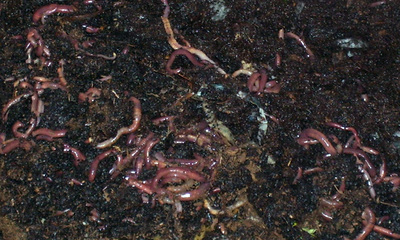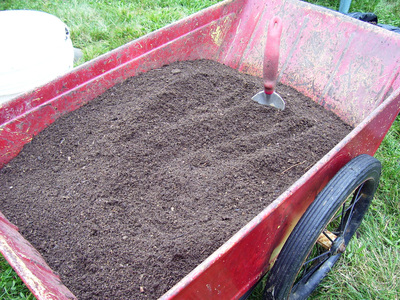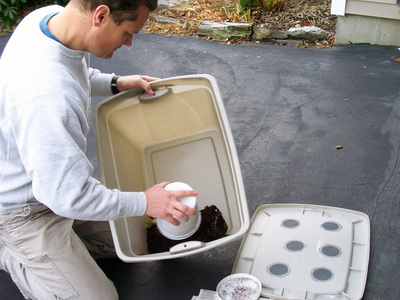What is Vermicomposting?
Vermicomposting uses worms (typically red wigglers or Eisenia fetida)
to convert organic waste into rich, fertile soil.
to convert organic waste into rich, fertile soil.
How is it different from hot composting?
Hot composting (what some people think of as outdoor compost piles and is also known as the Indole method of composting) is done outdoors and is best when you layer materials and mix regularly. Once hot compost cools, they will have worms, insects, bacteria, fungi, etc. all working to decompose waste. New hot compost piles are too hot for worms. Yes, vermicompost piles can be outdoors also, but what makes them special is the ability of vermicomposting to be working for you indoors when the weather gets cold and outdoor piles freeze.
Why vermicomposting?
Who should be vermicomposting?
Anyone can and everyone should (see Why vermicomposting, above). Once the bin is up and running it is really easy.
Where should I vermicompost?
You can vermicompost anywhere that you have space. The basement, cellar, or under the sink are great spots. Yes, you can also have your worm bin outside or in the garage, but you must keep the bin from freezing in the winter and getting too hot in the summer.
You can even bring a worm bin to work to vermicompost your waste from the work week! Check out this news story: In California, working worms join the office. |
What do I need to get started?
What do worms eat?
DO NOT FEED THEM: meat, fish, bones, dairy products, grease, vegetable oil, pet waste, salt, dirt from outside, plastic Their diet is basically the same food as your outdoor compost pile, but no salt or oils. This is all their “diet” requires. Adding other types of food may result in a foul odor and/or bugs. Regarding smell: Worms have no mouth, so they don’t eat the food, they eat the rot on the food. Our food doesn’t smell bad, the rot is what smells. As long as you don’t overfeed your worms, you won’t have a bad smell. Collect food scraps that worms like (see above) in a small container with a tight-fitting lid. This is especially important if you are keeping the container on your kitchen counter. Do not feed them more than 1/2 the weight of worms per week (e.g., 1 lb. worms = 1/2 lb. food per week).Worms will not try to escape from your bin unless the environment becomes unsuitable for them (usually too wet). |
|
|
Introduction to Vermicomposting VideoClick on the video to watch a 15-minute primer on vermicomposting basics as well as other relevant topics such as making your own worm bin, brewing worm tea and some helpful FAQs.
|





